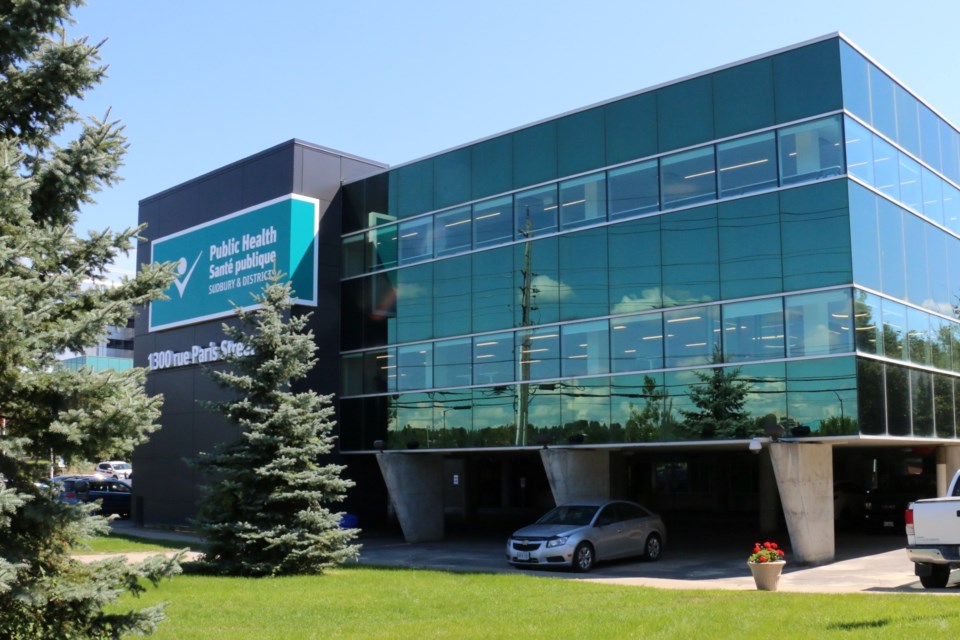Sudbury has made moves to become a more healthy-aging community. But ageism, one of the last seemingly socially acceptable forms of discrimination, can make life difficult for a lot of senior citizens.
That comment was part of a formal presentation made to the Sudbury Board of Health this week.
The presentation was made by public health nurse Laryssa Vares and health promoter Laura Cousineau, both with the health promotion and vaccine preventable diseases division of Public Health Sudbury and Districts. They said their presentation was timely since June is senior citizens month in Ontario.
“Healthy aging encompasses many aspects of our agency including healthy communities, chronic disease and injury prevention, among others. Focus programming is currently led by great health promotion staff and aligns with our vision of healthier communities for all," said Vares.
She added that in Canada's population, older adults make up the fastest growing demographic in Canada.
Locally, in the Greater Sudbury area, 21.5 per cent of our population is over the age of 65, she said. For reference, people aged 25 to 44 are at 25.8 per cent, people aged 45 to 64 are at 25.6 per cent. People under 25 years make up 27 per cent.
In terms of health, Vares said that as local seniors age, we can expect to see increases in chronic diseases. In 2021 more than 70 per cent of deaths could be attributed to chronic diseases, said Vares.
"We're all aging. Healthy aging takes a comprehensive approach towards health which includes our physical, social and mental wellness, along with our natural and built environments," said Vares.
She said ageism and the associated social isolation can be detrimental for some older people.
"And it's important for us to recognize that ageism remains one of the only forms of discrimination that is still socially acceptable, and we see it in everyday social interactions," she said.
"Social isolation is the objective state of having no or new networks to rely on for social interaction. Both ageism and social isolation are important social determinants of health," said Vares.
She said some seniors who experience social isolation may resort to excessive alcohol consumption, smoking and polypharmacy — as in unsafe use of medications — symptoms of depression and overall poor quality of life.
Vares said one approach to healthy aging is to make deliberate changes in local policies, local services and structural changes.
"It's important also to remember that age-friendly communities do not only benefit older adults, but they really benefit people of all ages and people of all abilities," she said.
The presentation used the fictional example of citizen Joan, a 78-year-old woman who was recently widowed, does not drive, has children who live out of town, is on a fixed income and wants to continue living in her home.
Vares said a more healthy community would have more nearby parks in trails, with good lighting, with good sidewalks. There would also be good public transportation nearby so Joan can get her own groceries or pick up her medications.
Another good thing would be volunteer opportunities for Joan so she could get connected with more people and have a better sense of being in the community.
This would include greater social inclusion, more respect and social media connections.
An age-friendly community would also have grants and funding enabling Joan to get minor repairs done to her homes, things like adding grab bars in the washroom.
As the presentation concluded, Vares was asked by board chair Rene Lapierre if there were examples of how Sudbury is stepping up to make life better for seniors.
Vares said public health rarely works one-on-one with seniors but she said the health unit does interact with many agencies and non-profits that act on behalf of seniors.
"However, when we do receive calls, we do our best to connect them with the relevant resources."
She said there are also efforts to connect seniors with organizations that help them to stay more physically active.
Len Gillis covers mining and health care for Sudbury.com.
